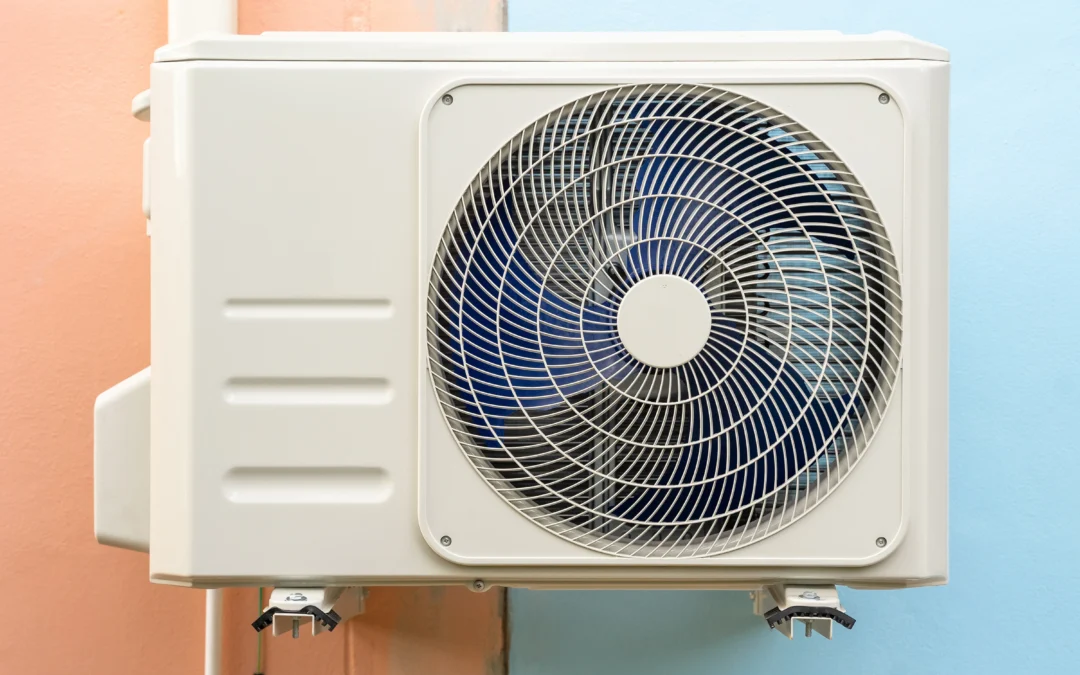Air conditioners have become an integral part of our lives, becoming a necessity in any household, providing comfort on hot days. So when our air conditioner stops working properly, it becomes a burden for everyone in the house. Air conditioners can underperform for several reasons. Today, we’ll look at one of the most significant reasons: a failing air conditioner compressor. Read on to learn more.
What Does an Air Conditioner Compressor Do?
The Heart of Your AC System
The compressor of an air conditioner is often regarded as the heart of the system because it is responsible for circulating refrigerant throughout the unit, which essentially enables the cooling process. This process allows your air conditioner to absorb heat from inside and expel it outside.
As you can imagine, if the compressor fails to function properly, the entire cooling process will be disrupted, and the whole purpose of AC cooling the room will be lost.
Why Compressor Issues Are a Big Deal
A compressor is a complex component of an AC. Any issue with it will require significant repairs and potentially high costs. Not only is the high cost of repairs or AC compressor replacement, but a failing compressor will also result in major disturbances at home. Imagine that on hot summer days, your air conditioner only produces warm air and makes loud noises.

Following a regular AC maintenance schedule will help detect any issues early and ensure your AC compressor remains in optimal condition.
8 Warning Signs Your AC Compressor May Be Failing
1. Your AC Is Blowing Warm Air
Because the compressor’s inner workings are designed to provide cool air, the obvious sign that your compressor is failing is when the AC stops producing cool air. If your air conditioner is no longer as cold as it once was, the compressor may be failing. However, before you jump to that conclusion, check your thermostat and filters first. If everything is fine, the problem is most likely caused by the compressor. In this case, act quickly and have a professional inspect the unit.
2. Loud or Unusual Noises from the Outdoor Unit
Loud or unusual noises from the unit may indicate a broken compressor and should not be ignored. Rattling or screeching noises may indicate loose parts, worn bearings, or internal damage. A properly functioning compressor should not make any noises, and a healthy unit should operate quietly.
3. Hard Starting or AC Struggles to Turn On
A hard starting occurs when the unit struggles to start or requires multiple attempts to power on. A failing compressor, such as internal damage, can cause these problems. Remember that repeatedly hard-starting your unit can lead to complete failure and further damage to the entire system.
4. Tripped Circuit Breaker or Electrical Issues
A failing compressor can also cause problems, such as tripped circuit breakers and electrical issues. Frequent tripping may indicate that the compressor is struggling to operate due to internal faults or overheating. Trying to reset the breaker should not be the solution. Call in an HVAC professional for a safe and effective inspection.
5. Vibrating or Shaking Condenser Unit
If the condenser unit, which houses the compressor, vibrates or shakes, it is not normal and indicates that something is wrong. When the parts of an air conditioner compressor are damaged or loose, it may vibrate. When this occurs, turn off the air conditioner and contact a professional to inspect. Letting it vibrate increased the likelihood of further damaging the AC.
6. Refrigerant Leaks or Low Refrigerant Levels
Refrigerant leaks or low levels can significantly impact compressor performance. To function properly, the compressor requires the appropriate amount of refrigerant. Leaks, which are often caused by system wear or damage, cause the compressor to work harder, resulting in overheating or failure.
7. High Indoor Humidity
A failing compressor will result in ineffective refrigerant circulation, limiting the AC’s ability to dehumidify indoor air. If you notice that your home feels muggy or sticky despite the AC being turned on, check the compressor.
Check for additional symptoms, such as low airflow, to confirm compressor issues and consult a professional.
8. Higher Than Normal Energy Bills
If you notice that your energy bills are suddenly higher than usual and the AC usage hasn’t changed, the AC may be working harder than it should, consuming more electricity in the process. This could stem from a broken compressor. This inefficiency often worsens over time, signaling the need for inspection and potential repair before the compressor fails entirely.
Should You Repair or Replace the AC Compressor?

Age of the System
An air conditioner has a lifespan of approximately 10-15 years. When deciding whether to repair or replace an air conditioner’s compressor, consider the unit’s age and condition. If your air conditioner is nearing or past its lifespan, replacing the compressor may not be cost-effective because the cost is comparable to purchasing a new air conditioner. In this case, buying a new unit is a better choice. However, if the age is still young and the compressor has a good maintenance history, repairing it makes more sense.
Frequency of Repairs
If you’re experiencing the need for constant repairs, especially over the past two years, this is a clear sign that the whole system is failing. A compressor repair might fix the immediate issue, but if you’re constantly addressing other problems, such as leaks and electrical faults, the costs will add up. Compare these costs to buying a new unit, and if repairs are becoming a regular expense, replacing the system could save money and provide better reliability.
Type of Compressor Failure
The type of compressor problems your unit is experiencing can influence whether it should be repaired or replaced. For example, a faulty capacitor or electrical connection can often be repaired at a lower cost. However, problems such as internal mechanical damage or burnout typically necessitate a complete compressor replacement. Request that a technician inspect the problem and advise you on the necessary steps to make an informed decision about your air conditioner.
Conclusion
Your home’s air conditioning is an essential part of your household, and keeping it in good working order is especially important during the summer. To achieve the desired effect from an air conditioning system, all parts, particularly the compressor, must be in good condition. Have a professional inspect your unit to ensure that the compressor and other AC components can provide the necessary comfort for your family during the summer months. Contact Johnson’s Heating & Air Conditioning today, and one of our experts will be happy to assist you.




Recent Comments